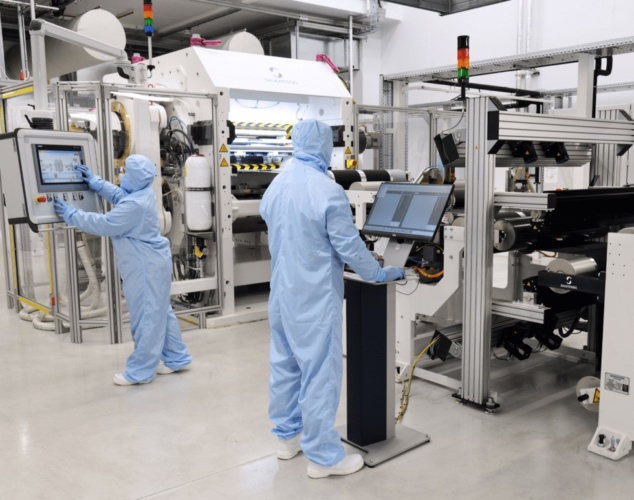
Dubbed ‘Power Up’, the project will see AMTE Power working with Imperial College London on battery modelling, focussing on new ways to design its cells with a particular focus on performance, interaction between cells and thermal management. The company will be supported by the recently opened UK Battery Industrialisation Centre (UKBIC) in Coventry, which will provide access to gigascale production capability via the facility’s 300x100 pouch assembly line.
“Our national battery manufacturing facility is already beginning to scale up new cells and battery packs with client companies looking to set up manufacturing centres in the UK,” Jeff Pratt, managing director of UKBIC said in a statement.
UK consortium to advance solid-state battery tech
“We are thrilled to be working on the Power Up project to help establish the feasibility of manufacturing AMTE Power’s Ultra High-Power Cells at volume. This is a great example of our ability to prove emergent battery products and real-world manufacturing scale up on behalf of our clients.”
Caithness-based AMTE is working on ‘smart cell’ battery technology that minimises the need for battery management systems (BMS) and is claimed to deliver significant weight and safety advantages. The company said its UHP design has high energy density, excellent heat transfer capability using tab cooling, and prevents overheating during cycling and fast charging. AMTE Power said its technology is suited to marine and aerospace applications as well as for EVs.
“This upscaling project will mark a huge step in the right direction in creating next generation batteries for electric vehicles in the UK,” said Steven Farmer, head of Technology and Product Development at AMTE Power.
“Many customer applications require cells designed with high energy density and higher charge rates than are currently offered by other cell manufacturers. Partnering with the specialist research team at Imperial College London will enable us to build on the energy performance of our Ultra High-Power cell and produce a more resilient battery to support our future zero-emission society.”




Nanogenerator consumes CO2 to generate electricity
Whoopee, they've solved how to keep a light on but not a lot else.